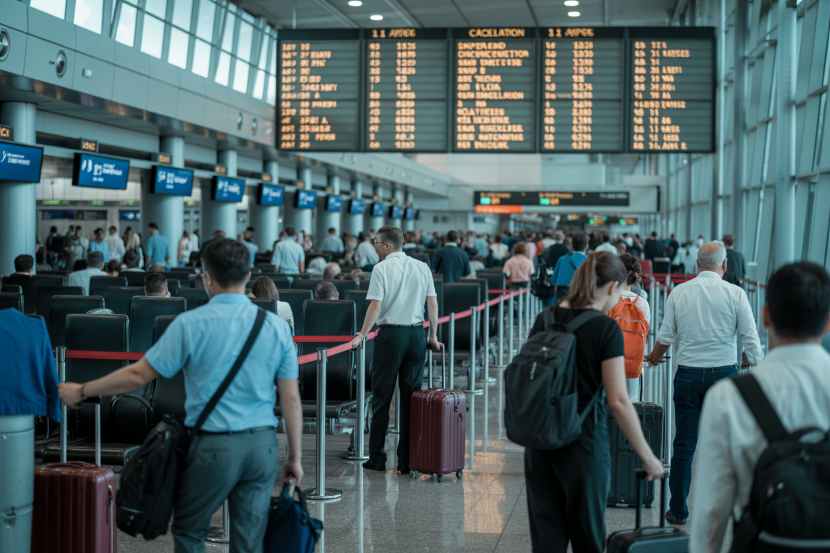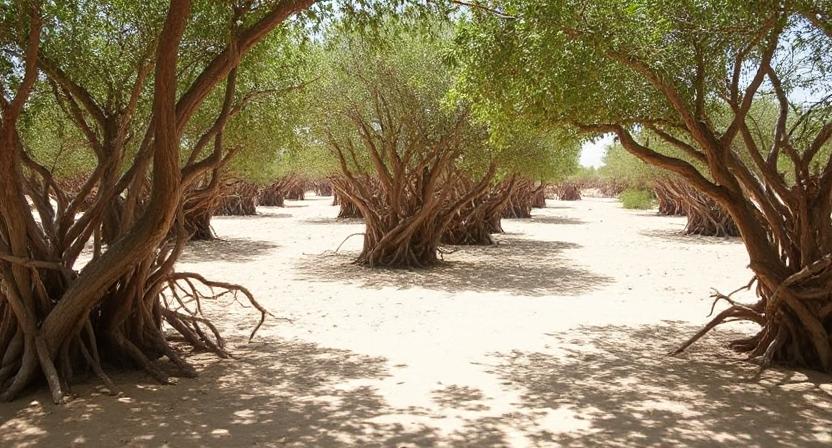Travelers Stranded Across South Africa, Zimbabwe, Egypt, and More as CemAir, ASKY, Air Cote D’Ivoire, Royal Jordanian, and Other Airlines Cancel 30 Flights, Impacting OR Tambo, Harare, Lome, Cairo, King Shaka Airports

Travelers are facing major disruptions across South Africa, Zimbabwe, Egypt, and other regions as several airlines, including CemAir, Fastjet Zimbabwe, Air Cote D’Ivoire, and Royal Jordanian, have canceled over 30 flights. This has caused severe delays and cancellations at key airports such as OR Tambo, Harare, Lome, Cairo, and King Shaka. Passengers are stranded as these cancellations have left many without alternative travel options. CemAir and Fastjet Zimbabwe are among the hardest hit, with multiple canceled flights affecting travelers in South Africa and Zimbabwe. The situation has worsened with airports like OR Tambo and Harare seeing heavy disruptions.
Affected Cities and Airports
The cities and airports include Johannesburg with OR Tambo International Airport and Durban with King Shaka International Airport in South Africa. In Zimbabwe, Harare is represented by Harare International Airport. Lome, the capital of Togo, has Lome Airport, while Cairo, the capital of Egypt, is served by Cairo International Airport. Finally, Dakar, the capital of Senegal, is home to Blaise Diagne International Airport. These airports have been impacted by significant flight cancellations and delays.
Flight Cancellations
| Airport | Airline | Cancelled | Delayed |
|---|---|---|---|
| OR Tambo Int’l | CemAir | 4 | 2 |
| South African Airways | 3 | 18 | |
| Fastjet Zimbabwe | 3 | 4 | |
| King Shaka Int’l | CemAir | 2 | 0 |
| South African Airways | 1 | 5 | |
| Harare International | Fastjet Zimbabwe | 7 | 3 |
| Blaise Diagne | Air Senegal | 6 | 3 |
| Lome | ASKY Airlines | 1 | 9 |
| Air Cote D’Ivoire | 1 | 1 | |
| Cairo Int’l | Royal Jordanian | 2 | 2 |
Affected Airlines
The airlines include CemAir, South African Airways, and Fastjet Zimbabwe, which operate in South Africa and Zimbabwe. Air Senegal serves Senegal with flights from Blaise Diagne International Airport. ASKY Airlines and Air Cote D’Ivoire are based in West Africa, with ASKY Airlines operating in Togo and Air Cote D’Ivoire flying from Lome and Cote D’Ivoire. Lastly, Royal Jordanian operates from Cairo International Airport in Egypt. These airlines have been affected by significant flight disruptions, causing delays and cancellations for travelers.
Overview of Flight Cancellations
OR Tambo International (South Africa)
- CemAir had 4 cancellations (11% of their flights) and 2 delays (5%).
- South African Airways canceled 3 flights (4%) and had 18 delays (24%).
- Fastjet Zimbabwe experienced 3 cancellations (15%) and 4 delays (21%).
King Shaka International (South Africa)
- CemAir canceled 2 flights (16%) but had no delays (0%).
- South African Airways had 1 cancellation (6%) and 5 delays (31%).
Harare International (Zimbabwe)
- Fastjet Zimbabwe had 7 cancellations (25%) and 3 delays (10%).
Blaise Diagne (Senegal)
- Air Senegal canceled 6 flights (37%) and had 3 delays (18%).
Lome (Togo)
- ASKY Airlines had 1 cancellation (3%) and 9 delays (28%).
- Air Cote D’Ivoire canceled 1 flight (33%) and had 1 delay (33%).
Cairo International (Egypt)
- Royal Jordanian had 2 cancellations (16%) and 2 delays (16%).
Flight cancellations and delays are widespread across these airports, with Blaise Diagne in Senegal experiencing the highest percentage of cancellations (37%) due to Air Senegal. Harare International and King Shaka International also saw significant cancellations, particularly from Fastjet Zimbabwe and South African Airways, respectively. Other airports like OR Tambo International, Lome, and Cairo International also reported cancellations, though the percentages were relatively lower. Delays were a common issue, particularly with South African Airways at OR Tambo and King Shaka, and ASKY Airlines at Lome.
This disruption has led to stranded passengers and significant travel challenges, especially for those flying with smaller carriers like Fastjet Zimbabwe, ASKY Airlines, and Air Cote D’Ivoire, which had higher cancellation rates. Passengers are advised to monitor their flight status closely.
Flight cancellations and delays have caused significant disruption across multiple airports, including OR Tambo, King Shaka, Harare, Blaise Diagne, Lome, and Cairo. Airlines such as CemAir, Fastjet Zimbabwe, South African Airways, Air Senegal, ASKY Airlines, Air Cote D’Ivoire, and Royal Jordanian have been particularly affected, with Air Senegal experiencing the highest cancellation rate. These disruptions have left many travelers stranded, facing uncertainty and long delays. Passengers are advised to stay informed, check with airlines for updates, and seek alternative arrangements if necessary.
Source: FlightAware
Disclaimer: The information provided is sourced from FlightAware and airport websites. We do not guarantee its accuracy and have no intention to harm or malign any airlines. If you notice any discrepancies, please contact us at pr@travelandtourworld.com
